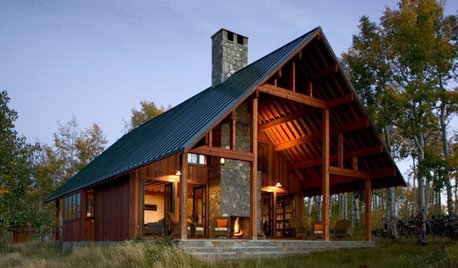Hi all,
I live primarily in New York City and have been looking for schools that provide Masters degrees in either Landscape Design or Architecture (my BA is in Fine Arts). There are two: a Landscape Architecture program at City College and a Landscape Design program at Columbia University. My first reaction, purely based on school reputation was to apply at Columbia. In addition, their focus is exactly what I'm looking for. Here's a snippet from their website:
"Columbias Landscape Design program prepares students for careers as landscape designers specializing in residential and smaller-scale projects. By contrast, landscape architecture is a state-regulated profession that generally concentrates on larger-scale, multifaceted projects that often involve a range of engineering challenges."
Bingo. Just what I wanted to hear, even if I think you may be able to argue some of the generalizations regarding the two professions. The idea of making a living from small scale projects appeals to me because of what I see around me - for example, even though I live in an apartment building, I personally have two terraces that can be designed, installed, planted and maintained and looking out my living room window I see literally hundreds of terraces and rooftop gardens that could use the same treatment. In my building alone there are at least 40 terraces and a roof space that is currently under assessment for development as communal relaxation and party space (fun fact: the roof of our 16 story building used to be a working farm with chickens, vegetable gardens and possibly cows - they may just be legends - to provide the residents with fresh produce and eggs). So right there, that seems like a lot of potential work available even without agriculture thrown into the mix.
I'm a bit worried however, the more I look into Columbia's program. First, it is a Continuing Education program, and one that has only been in existence for a couple of years or so. Perhaps I am unfair in my bias but I always assumed Continuing Education programs were populated by old biddies (full disclosue: I am definitely facing the prospect of old biddy-hood, sooner rather than later) with the luxury of time and money to take a couple of course on Renaissance Art or whatever, before their summer trip to Florence. But I want to actually WORK in the field (I have run my own small business in the past and am familar with all the associated trials and tribulations). And I know you only get out of an experience what you put in, but I wonder if such a young program really has its act together. To compound this fear I went to an information session at Columbia and it appears that 30% of the student who started the program actually withdrew to attend the City College program (no word on if they are happy there though).
All this is complicated by the fact that although I can see lots of spaces to design that doesn't mean anyone wants to pay me to do that. Plenty of terraces and roof spaces function merely as storage for notoriously tiny apartments.
I have been taking classes in design at the New York Botanical Garden and have met two teachers who do make a living working primarily on NYC terraces (although they both may have supplemental incomes - for one they are teaching at NYBG for one although possibly they do this more to troll for clients - not that I have any problem with that, it seems smart marketing to me). One does primarily planting design and plant installation (though she subs out irrigation work) and maintenance and the other who is a Landscape Architect from Harvard does very high end terrace projects - modern and monumental, the type you see in design magazines, for extremely wealthy clients. But I wonder if her start and success (apart from personal ititiative which no doubt played the biggest part) was due more to the quality of education recieved, the name of the institution she attended or the fact that she is a Landscape Architect rather than a Landscape designer. A third instructor at NYBG has a design a build company that specializes in pools in Westchester. He claims that anyone who wants to pursue a Landscape career in the city will be doing it as a hobby, not a career and perhaps he is right.
So, I have looked through discussions on GW about landscape Design vs. Architect as a career but wondered if anyone could comment on the viabilty of one over the other (or neither) in an urban environment. Also, if anyone has exeprience or worked with anyone who attended either the City College program or the Columbia program I'd appreciate hearing any inside information about them.
Thanks for any input you can provide, I have a lot of respect for the professionals on this site (and i apologize to anyone who found my post too long - time is valuable but I wanted to give as much info as I could up front to forestall questions) and am really grateful for any advice you may have.
















laag
accordianOriginal Author
Related Professionals
Surprise Landscape Architects & Landscape Designers · Citrus Heights Landscape Architects & Landscape Designers · Allentown Landscape Contractors · Avocado Heights Landscape Contractors · Chattanooga Landscape Contractors · Dinuba Landscape Contractors · Fort Hunt Landscape Contractors · Fridley Landscape Contractors · Gaithersburg Landscape Contractors · Mason Landscape Contractors · Porterville Landscape Contractors · Salmon Creek Landscape Contractors · San Antonio Landscape Contractors · Yukon Landscape Contractors · Round Lake Beach Driveway Installation & Maintenancelaag
accordianOriginal Author
laag
watergal
accordianOriginal Author
laag
marcinde
accordianOriginal Author
marcinde
laag
accordianOriginal Author